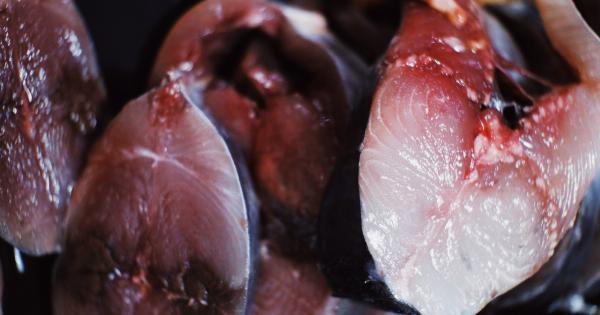Have you ever experienced an unpleasant metallic taste of blood in your mouth without any apparent reason? This unsettling sensation can be quite distressing, leaving you wondering what could be causing it.
In this article, we will explore some of the potential causes of a bloody taste in the mouth and discuss whether or not you should be concerned.
1. Oral Health Issues
Poor oral hygiene can lead to several oral health problems, including gum disease, tooth decay, and oral infections. These conditions can cause bleeding gums, which may result in a bloody taste in the mouth.
If you notice persistent gum bleeding, it is essential to visit your dentist for a thorough examination and appropriate treatment.
2. Nasal Conditions
Some nasal conditions can lead to a bloody taste in the mouth. Sinus infections, nasal polyps, and even nasal trauma can cause nasal bleeding, which can subsequently result in blood drainage into the throat and mouth.
If you frequently experience a bloody taste along with nasal issues, consult with an ENT specialist for a proper diagnosis and treatment.
3. Acid Reflux
Acid reflux, also known as gastroesophageal reflux disease (GERD), occurs when stomach acid flows back into the esophagus. This condition can cause heartburn, regurgitation, and in some cases, a bitter or bloody taste in the mouth.
If you suspect acid reflux as the cause of your symptoms, it is advisable to consult a gastroenterologist for further evaluation and management.
4. Medications
Some medications, such as certain antibiotics, heart medications, and antithrombotic drugs, may have side effects that result in a metallic or bloody taste in the mouth.
If you recently started taking any new medications and noticed this taste, consult your healthcare provider to discuss possible alternatives or adjustments in dosage.
5. Respiratory Infections
Infections of the respiratory tract, such as bronchitis or pneumonia, can occasionally lead to a bloody taste in the mouth. This may be due to blood from inflamed airways draining into the throat.
If you are experiencing respiratory symptoms along with a persistent bloody taste, it is crucial to seek medical attention to determine the underlying cause and receive appropriate treatment.
6. Inflammatory Conditions
Various inflammatory conditions like Sjögren’s syndrome, autoimmune diseases, and temporomandibular joint disorder (TMJ) can cause dryness and bleeding in the mouth and lead to a metallic or bloody taste.
If you have been diagnosed with any inflammatory conditions and are experiencing this symptom, consult with your healthcare provider for proper management.
7. Trauma or Injury
Any trauma or injury to the mouth, nose, or throat region can result in bleeding, which can manifest as a bloody taste in the mouth. Accidental bites, mouth ulcers, or cuts from sharp objects can be the underlying causes.
If you have recently experienced any trauma or injury in the oral or nasal areas, it is advisable to visit a healthcare professional for an evaluation.
8. Blood Disorders
Certain blood disorders, such as hemophilia or leukemia, can lead to spontaneous bleeding in various parts of the body, including the mouth.
If you suspect an underlying blood disorder, it is vital to consult a hematologist for a proper diagnosis and subsequent management.
9. Dental Procedures
After dental procedures like tooth extractions, root canals, or gum surgeries, it is common to experience some bleeding in the oral cavity. This bleeding can result in a temporary bloody taste in the mouth.
However, if the bleeding or taste persists beyond the usual recovery period, consult your dentist for a follow-up examination.
10. Side Effect of Radiotherapy
In some cases, individuals undergoing radiotherapy for head and neck cancers may experience a bloody taste in their mouth. This side effect can occur due to damage to the salivary glands and mucous membranes.
If you are undergoing radiotherapy and notice this symptom, discuss it with your oncologist for appropriate guidance and support.
When to Seek Medical Attention?
While a bloody taste in the mouth can sometimes be attributed to benign causes, it is essential to know when to seek medical attention. Consult a healthcare professional if:.
- The bloody taste persists for an extended period or occurs frequently.
- You notice other alarming symptoms like unexplained weight loss, severe pain, or difficulty swallowing.
- You have a history of chronic diseases, such as diabetes or hypertension.
- You are taking multiple medications that might interact with each other.
- You experience sudden and unexplained bleeding from multiple sites in the body.
Remember, early detection and diagnosis of any underlying conditions can significantly improve prognosis and prevent potential complications.






























